Simón (2023): a movie about my life | una película sobre mi vida

La película venezolana más importante del año
I know that many people like to see the phrase Based on true events at the beginning of a movie or on its promotional poster. It's as if, for them, by taking as a reference something that really happened, the story had more value. I differ from that opinion. For me, a good story is good regardless of whether it happened or not, whether it is fantasy, or drama, or science fiction, or horror. It just needs to be well written, well directed and have good performances. That's why, for me, Based on real events almost always leaves me somewhat indifferent from the point of view of my assessment of the film.
Sé que a muchas personas les gusta ver la frase Basada en hechos reales al inicio de una película o en su afiche promocional. Es como si, para ellos, por el hecho de tomar como referencia algo que en verdad sucedió la historia tuviera más valor. Difiero de esa opinión. Para mí, una buena historia es buena independientemente de si ocurrió, o no, de si es fantasía, o drama, o ciencia ficción, o terror. Sólo necesita estar bien escrita, bien dirigida y tener buenas actuaciones. Por eso, a mí, eso de Basada en hechos reales, casi siempre me deja algo indiferente desde el punto de vista de mi valoración sobre la película.
However, it couldn't be like that with this film because I feel very close to it. I can empathize with a character who fights in Gaza, with a homosexual condemned in conservative times, with a boy who wants to leave his village in the jungle and become an astronaut, etc., any story I see, if it manages to move me, I feel it a little like my own while the film lasts. But have you ever wondered what a soldier who was in Afghanistan feels when he sees his story on the big screen? What might child victims of kidnapping feel when watching Sounds of Freedom? How might First They Killed My Father have affected Cambodian children if the film had been made forty years earlier? Well, something like that happens to me with the film Simón, written and directed by Diego Vicentini and released this year in Venezuelan movie theaters. In summary, the film tells the story of a young Venezuelan student leader, who is captured during the 2017 protests and who, after being tortured and released, requests asylum in the United States. I was not a student leader, but that reality is very close to me, temporally and geographically, because I lived through that time and also like Simón I had to emigrate from the land where I was born. When I found out that they would show this film in three theaters here in Santiago and - for now - only for two days, I didn't hesitate to look for some time in my work day to go to the cinema because I didn't know if I would have another opportunity.
Sin embargo, no podía ser así con esta película porque la siento muy cercana. Puedo empatizar con un personaje que lucha en la franja de Gaza, con un homosexual condenado en tiempos conservadores, con un niño que quiere salir de su aldea en la selva y convertirse en astronauta, etcétera, cualquier historia que vea, si logra conmoverme, la siento un poco como propia mientras dura la película. Pero, ¿alguna vez se han preguntado qué siente un soldado que estuvo en Afganistán al ver su historia en la gran pantalla? ¿qué podrían sentir los niños víctimas de secuestro al ver Sounds of Freedom? ¿cómo hubiera podido afectar First They Killed My Father a los niños camboyanos si la película se hubiera realizado cuarenta años antes? Bueno, algo así me ocurre con la película Simón, escrita y dirigida por Diego Vicentini y estrenada este año en las salas de cine venezolanas. En resumen, la película cuenta la historia de un joven venezolano, líder estudiantil, que es capturado durante las protestas del 2017 y que luego de ser torturado y liberado solicita asilo en los EEUU. No fui líder estudiantil, pero esa realidad es muy cercana a mí, temporal y geográficamente, porque viví esa época y también como Simón tuve que emigrar del suelo que me vio nacer. Cuando supe que proyectarían esta cinta en tres salas acá en Santiago y - de momento - solamente por dos días, no dudé en buscar algún resquicio en mi jornada laboral para acudir al cine porque no sabía si tendría otra oportunidad.
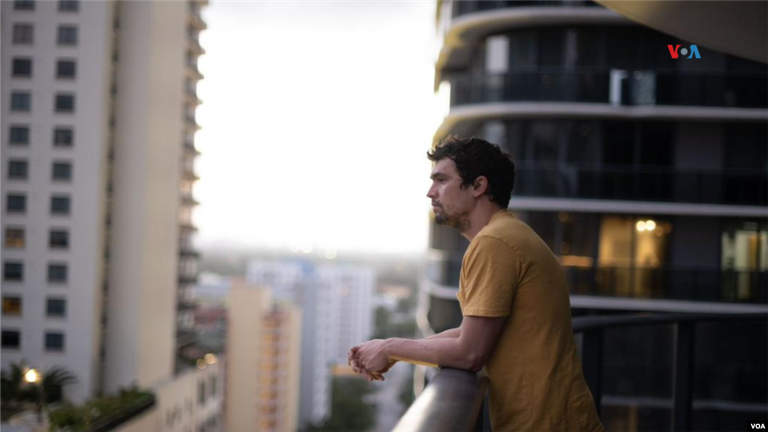
Simón is played in a great way by Christian McGaffney, who is part of a cast that includes Jana Nawartschi, Luis Silva, Roberto Jaramillo (who plays Chucho, the most charismatic character in the film) and surely the best-known name, Franklin Virgüez, an actor with a long career on Venezuelan television. Everyone contributes their talent to a production that tells a recent, sensitive story, portrayed in a great way and that many still don't know beyond the borders of Venezuela.
Simón es interpretado de gran manera por Christian McGaffney, quien forma parte de un elenco que incluye a Jana Nawartschi, Luis Silva, Roberto Jaramillo (quien interpreta a Chucho, el personaje más carismático de la película) y seguramente el nombre más conocido, Franklin Virgüez, actor de larga trayectoria en la televisión venezolana. Todos aportan su talento a una producción que cuenta una historia reciente, sensible, retratada de gran manera y que aún muchos no conocen más allá de las fronteras de Venezuela.
Because yes, I think that Simón is a Venezuelan film, made by and for Venezuelans. But we know that history, we lived it, in other words: we are that history. Seeing it on the big screen is a way of denouncing it, of not letting die the memory of these young people who fought in the streets, of the torture methods used by the regime that is still in power, of those who were murdered for raising their voices asking to recover the glory of a country kidnapped by a political party and an ideology of extremes and resentment; and above all is about the consequences, the physical and psychological consequences that events like this can generate in a person. What happened in Venezuela in 2017 was key to the mass exodus that occurred in the following years and although tens of thousands of Venezuelans live today in other countries in Europe, South America or the United States, many of the local citizens of those places, those who received them are unaware of the context that made us leave our country. That's why I think Simón has the possibility of telling this story to others, not just Venezuelans. The film was already nominated at the Florida Film Festival and was awarded by the public at the Dallas International Film Festival as Best International Fiction Feature Film. Two days ago it premiered in Chile, in Peru, in Panama, and premieres will continue in Colombia, Argentina, and many other screenings, and I hope that the tickets are sold out because it's a story that must be seen and heard.
Porque sí, pienso que Simón es una película venezolana, hecha por y para los venezolanos. Pero nosotros conocemos esa historia, la vivimos, dicho de otro modo: nosotros somos esa historia. Verla en la gran pantalla es una forma de denunciarla, de no dejar morir el recuerdo de estos jóvenes que lucharon en la calle, de los métodos de tortura empleados por el régimen que aún se encuentra en el poder, de aquellos que fueron asesinados cuando sólo alzaban la voz pidiendo recuperar la gloria de un país secuestrado por un partido político y una ideología de extremos y rencores; y sobre todo de las consecuencias, las secuelas físicas y psicológicas que pueden generar eventos así en una persona. Lo que ocurrió en Venezuela en el 2017 fue algo clave para el éxodo masivo que se vivió en los años siguientes y aunque decenas de miles de venezolanos viven hoy en otros países de Europa, de Suramérica o en los EEUU, muchos de los ciudadanos locales de allí que los recibieron desconocen el contexto que nos hizo dejar nuestro país. Por eso creo que Simón tiene la posibilidad de contar esta historia a los demás, no sólo a los venezolanos. La película ya fue nominada en el Festival de Cine de Florida y fue premiada por el público en el Festival International de Cine de Dallas como Mejor largometraje de ficción internacional. Hace dos días se estrenó en Chile, en Perú, en Panamá, y seguirán estrenos en Colombia, Argentina, muchas otras funciones, y espero que las entradas se agoten porque es una historia que debe ser vista y escuchada.
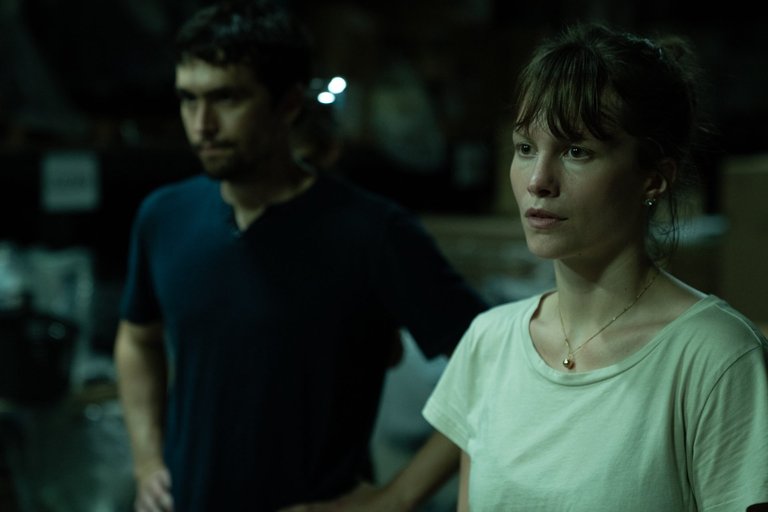
One of Simón's greatest successes is the editing. The narrative is not linear and that contributes to the management of the emotions that they want to awaken in the public. I really liked that the opening scene was a group of young people singing Happy Birthday (Venezuelan version, of course) to one of their friends and that there were quick flashbacks that added tension to what was a moment of joy. From there we follow two timelines: the present, with Simón in Miami, thinking about whether to request political asylum; and the one from the past, where Simón is shown in Caracas, with his companions, fighting in the streets and then being captured and tortured by state agencies. Now, these memories are not inserted into the narrative in an imposed manner, but rather respond to stimulus (as in Proust), so an everyday detail can trigger Simón's memory and make him relive nightmares from his past, take his breath away and cause cardiac arrhythmia. Furthermore, this parallel narrative partially shows some things that are then expanded and produce unexpected plot twists, which manages to capture the viewer's attention from start to finish because there's room for everything: joy, guilt, pain, regret, defeat, hope, loyalty, helplessness, frustration, love, redemption, forgiveness, serious faces, lots of laughter and also a few tears. Simón is a film that, like good cinema, makes you feel.
Uno de los mayores aciertos de Simón es el montaje. La narración no es lineal y eso contribuye al manejo de las emociones que se quieren despertar en el público. Me gustó mucho que la escena inicial fuera la de un grupo de jóvenes cantando el Cumpleaños Feliz (versión venezolana, por supuesto) a uno de sus amigos y que hubieran veloces flashbacks que agregaran tensión a lo que era un momento de alegría. A partir de allí seguimos dos líneas temporales: la del presente, con Simón en Miami, pensando si pedir asilo político; y la del pasado, en donde se muestra a Simón en Caracas, con sus compañeros, luchando en las calles y luego siendo capturado y torturado por organismos del estado. Ahora bien, esos recuerdos no se intercalan en la narración de manera impuesta, sino que responden a estímulos (como en Proust), por lo que un detalle cotidiano puede detonar la memoria de Simón y hacerle revivir pesadillas de su pasado, quitarle el aliento y producirle arritmia cardíaca. Además, esta narración en paralelo va mostrando parcialmente algunas cosas que luego son ampliadas y producen giros inesperados en la trama, lo que consigue captar la atención del espectador de inicio a fin porque hay espacio para todo: alegría, culpa, dolor, arrepentimiento, derrota, esperanza, amistad, impotencia, frustración, amor, redención, perdón, caras serias, muchas risas y también unas cuantas lágrimas. Simón es una película que, como el buen cine, te hace sentir.
In an interview in April of this year, Vicentini commented that he chose the name of the central character and the name of the film to "attribute the mythology of Bolívar to all these young people who are anonymous»" and based it on a 26-minute short film that he made as a degree thesis in 2018 and in which he worked with McGaffney himself in the role major. Despite the political context and the fact that many relate it from that side, Simón is more of a psychological drama that exposes how difficult it is to overcome such traumatic events, to forget and start again, to make a new life in a new country without knowing when or if one day you will see your family again, your friends, if you will walk through the streets of your neighborhood again, that feeling of uprooting, of forced exile, of not being from there because you left and not being where you come from because you are a foreigner, of losing your country, your home and not knowing if you will have one again, whether to adopt your new land and not return to your cradle, or whether to forget that there is a world outside and return to your beloved prison.
En una entrevista en abril de este año, Vicentini comentó que escogió el nombre del personaje central y el de la película para "atribuirle la mitología de Bolívar a todos estos jóvenes que son anónimos»" y la basó en un cortometraje de 26 minutos que hizo como tesis de grado en 2018 y en el que trabajo con el propio McGaffney en el papel principal. A pesar del contexto político y de que muchos la relacionan por ese lado, Simón es más un drama psicológico que expone lo difícil que es superar esos eventos tan traumáticos, olvidar y empezar de nuevo, hacer una nueva vida en un nuevo país sin saber cuándo o si algún día volverás a ver a tu familia, a tus amigos, si volverás a caminar por las calles de tu barrio, esa sensación de desarraigo, de exilio forzado, de no ser de allí porque te fuiste y no ser de dónde llegas por ser extranjero, de perder tu patria, tu hogar y de no saber si volverás a tener uno, si adoptar tu nueva tierra y no volver a tu cuna, o si olvidar que hay un mundo afuera y regresar a tu amada prisión.
Someone once told me a phrase that - according to that person - had been written by Roberto Bolaño, Chilean author of 2666, and although I have read dozens of his books and I still haven't found that phrase in any of them, I haven't forgotten it because it summarizes an important idea in a very good way: "Exile revokes destiny". Being born in a place entails a series of conditions and circumstances under which we grow and which we lose when we must leave the only world we have ever known. So, if you are Venezuelan, see this movie. It's a tribute to the young people who fought and died in the protests, to those who still fight and live in Venezuela, but it's also a tribute to us, a reminder of what we have been through and in its own way it's a liberating cry that tells us we are not alone, we accompany each other in the distance. And if you are not Venezuelan, but you know one or have seen how your country has received tens of thousands of us, watch this movie so you understand a little better where we come from, what made us leave a country we love and what makes us long to return there. This is our story, pay attention to it. I was not a student leader nor was I tortured like Simón, but I know what it is to face the dilemma of leaving Venezuela and not knowing whether to make a life in another country and start over or return to the land where I was born and grew up, so in some way Simón is also my story, how many of you have already seen this movie? I read you in the comments.

Una vez alguien me dijo una frase que - según esa persona - la había escrito Roberto Bolaño, chileno autor de 2666, y aunque he leído decenas de libros suyos y aún no encuentro esa frase en ninguno de ellos, no la olvidé porque sintetiza muy bien una idea importante: "El exilio revoca el destino". Nacer en un lugar conlleva una serie de condiciones y circunstancias bajo las cuales crecemos y que perdemos cuando debemos abandonar el único mundo que hemos conocido. Así que, si eres venezolano, ve esta película. Es un homenaje a los jóvenes que lucharon y murieron en las protestas, a quienes aún luchan y viven en Venezuela, pero también es un homenaje a nosotros, un recordatorio de lo que hemos pasado y a su manera es un grito liberador que nos dice que no estamos solos, que en la distancia nos acompañamos. Y si no eres venezolano, pero conoces alguno o has visto cómo tu país ha recibido decenas de miles de nosotros, ve esta película para que entiendas un poco mejor de dónde venimos, qué nos hizo dejar un país que amamos y qué nos hace anhelar volver a estar allí. Esta es nuestra historia, préstale atención. No fui líder estudiantil ni fui torturado como Simón, pero sé lo que es enfrentarse al dilema de dejar Venezuela y no saber si hacer vida en otro país y empezar de nuevo o regresar al suelo que me vio nacer y crecer, así que de alguna manera Simón también es mi historia, ¿cuántos de ustedes ya han visto esta película? Los leo en los comentarios.
Reviewed by | Reseñado por @cristiancaicedo
Other posts that may interest you | Otros posts que pueden interesarte:
 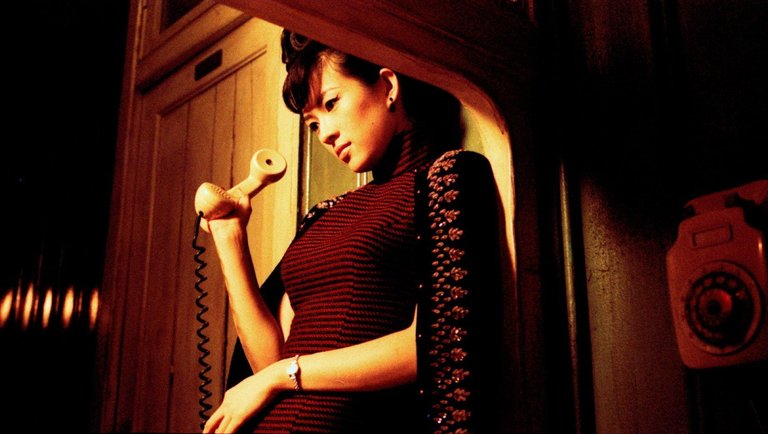 |
|---|
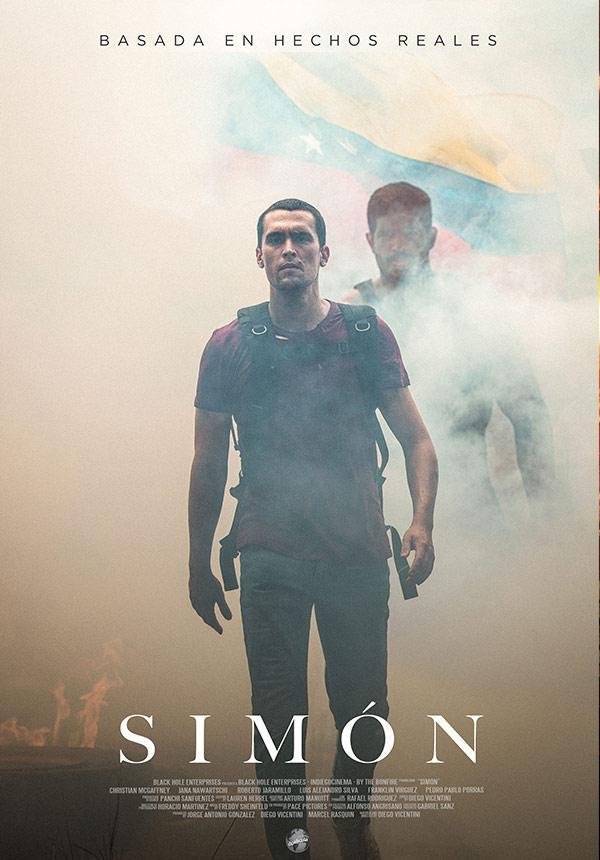
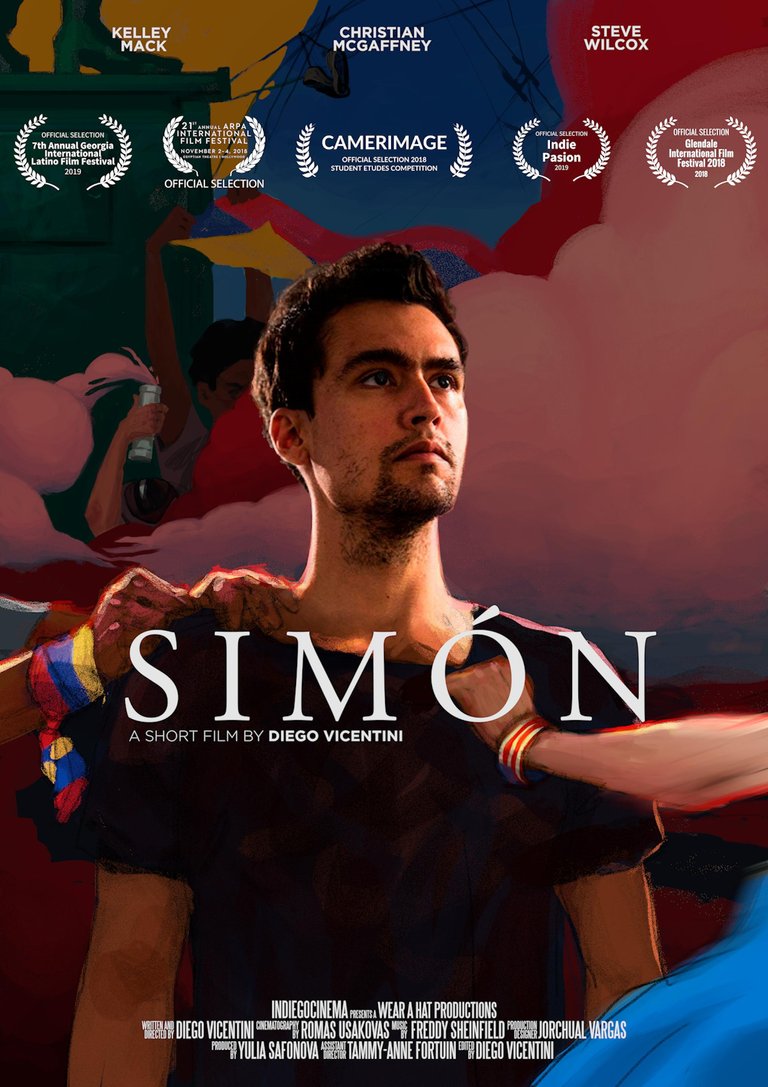
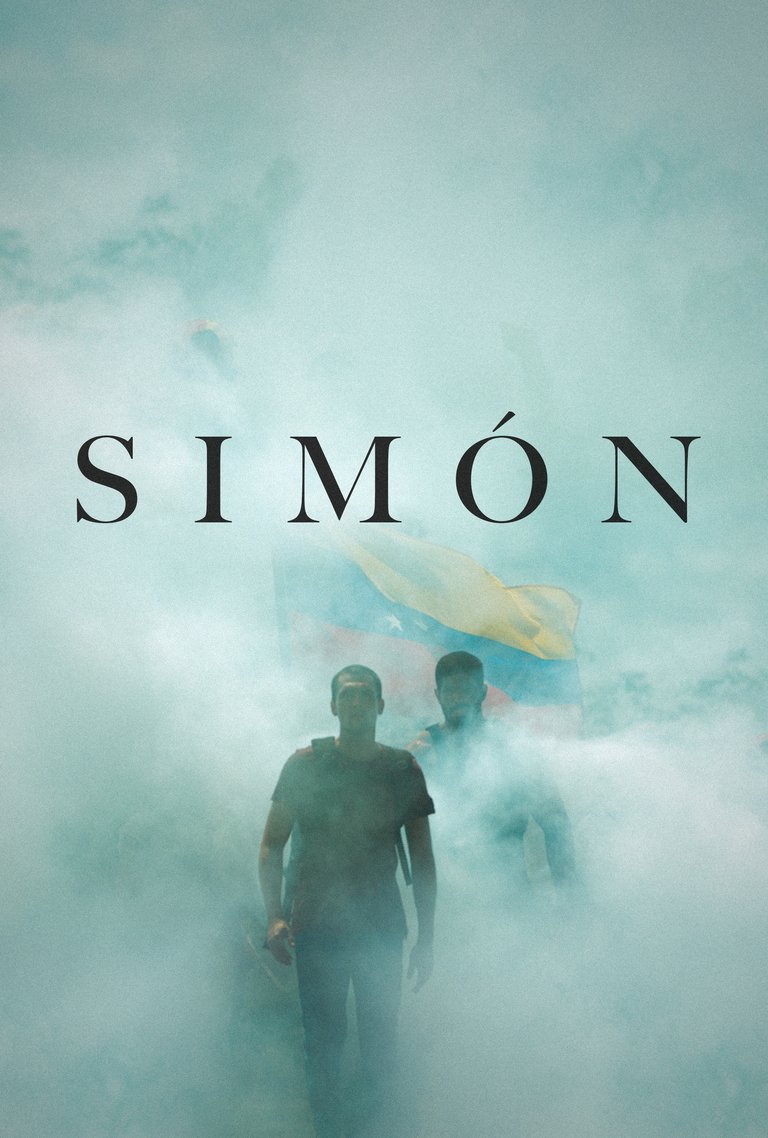
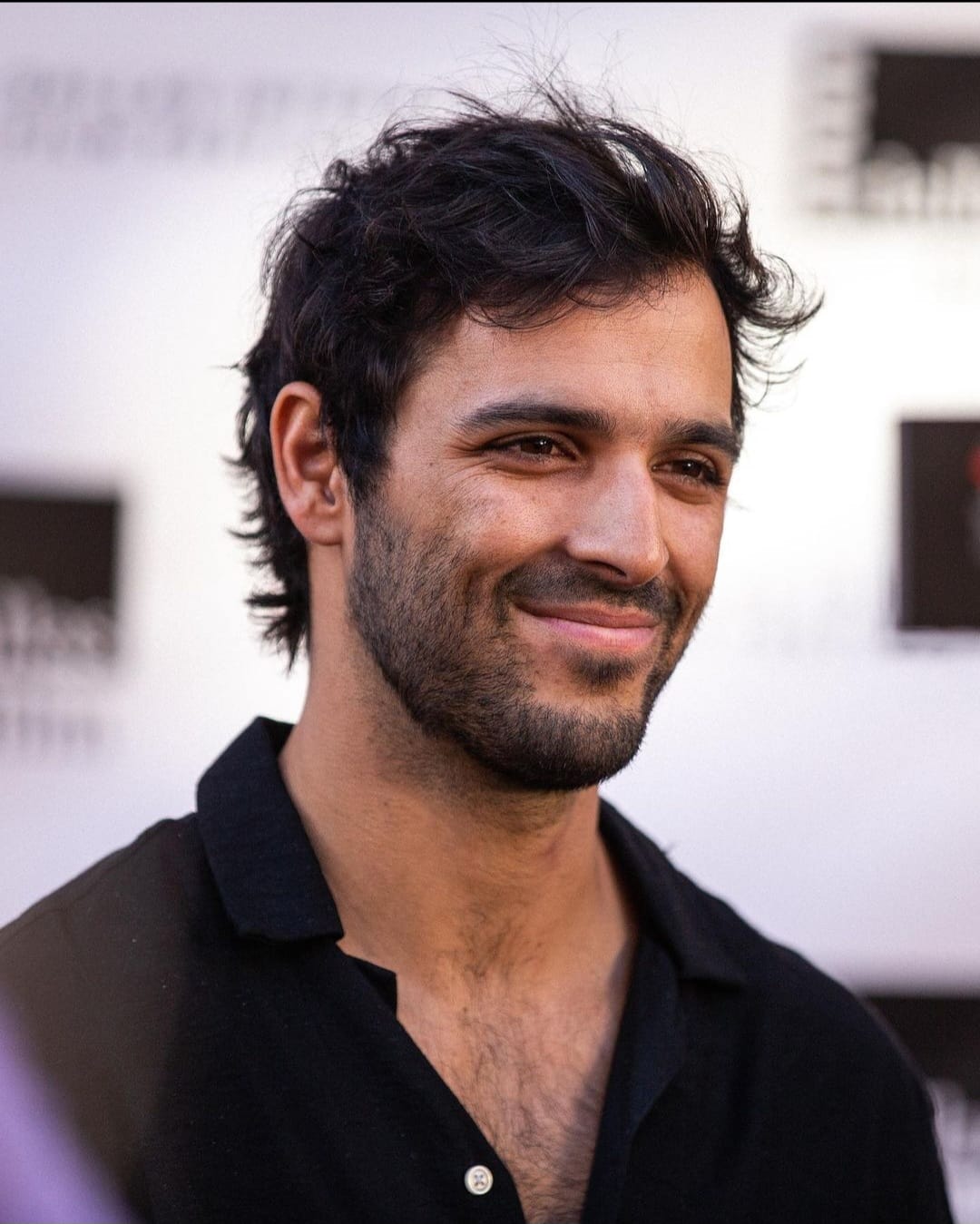
Estoy en Bogotá y estoy loca por ya ver esta película.
También la siento muy cercana, tan solo ver las fotos me remontan a las protestas que mucho vivimos hasta con lágrimas.
Muchas gracias por traerla aquí.
Atenta a la página oficial de la película porque pronto la proyectarán allá. Una de las cosas que más me gusta es que sí, la historia parece la de un grupo de venezolanos, pero también hay una historia individual bien construida (la de Simón) con la cual muchos otros se pueden identificar (refugiados, exilados, migrantes, o personas que tengan traumas por hechos violentos de su pasado).
Espero que la puedas ir a ver y espero leer tu opinión al respecto. Saludos.
Claro, todas las narrativas nos tocan de distintas formas.
Entiendo que ha de ser un sentimiento muy duro. Remover todo ese pasado y pensar que aún sigue activo debe ser algo inexplicable. No he escuchado sobre esta película y no sé si será proyectada en Venezuela. Con este régimen y por uno de los personajes que nombras (Franklin Virguez) quién sabe... Gran reseña!! Saludos.
Sé que actualmente está en cartelera en Cinex en algunas ciudades de Venezuela . Se estrenó el mes pasado, así que no sé cuánto tiempo más la proyecten. Espero puedas verla pronto. Saludos.
Con respecto a lo que te refieres a "basado en hechos reales" es que algunas personas creen que será fiel a la realidad, más para eso están los documentales, sin embargo, al estar está palabra "basado" hace referencia a que tomas parte de la historia real para hacer una. Y ahora, con respecto a la reseña de la película, no solo me ha gustado también me dieron ganas de verla, siendo un hecho y momento para todos nosotros los venezolanos y a cualquier que ha pasado una situación así en su país. ¡Saludos!
No la he visto porque también es una película que me toca la fibra. Fuí oposición activa desde que entré a la universidad, por allá por el 2004. Ver como logramos y ganamos un referendo en 2007 o por presión obligar a que nos dijeran que el mortadelo había muerto, es uno de los mayores logros que tuvimos. Luego ver como nos disolvian el movimiento con exilios, desapariciones, muertes, es muy fuerte para mí, aun toca mi alma y aun siento que pude haber hecho mas.
Gracias por compartir tu reseña y algún día, volverán. Saludos.
From Venezuela, our witness drives decentralization and the adoption of Web3 technology, creating opportunities for the local community and contributing to the global ecosystem. // Desde Venezuela, nuestro testigo impulsa la descentralización y la adopción de la tecnología Web3, generando oportunidades para la comunidad local y contribuyendo al ecosistema global.
Sigue, contacta y se parte del testigo en: // Follow, contact and be part of the witness in:
No he tenido la oportunidad de verla, espero encontrarla por los caminos de internet. Ya nuestra situación ha ido creando una narrativa que ha cogido fuerza en el mundo de la literatura, ahora con esta película se le da un impulso mayor. Para los de mi generación era impensable que algún día llegáramos a vivir lo que nos ha tocado en los últimos veinticuatro años, nadie se imaginaba que nuestra "Tierra de Gracia" expulsaría a sus hijos y los dejaría en la incertidumbre más absoluta, sin familias y sin terruño.
Gracias por compartir tu mirada querido @cristiancaicedo. Un fuerte abrazo desde Maracay.